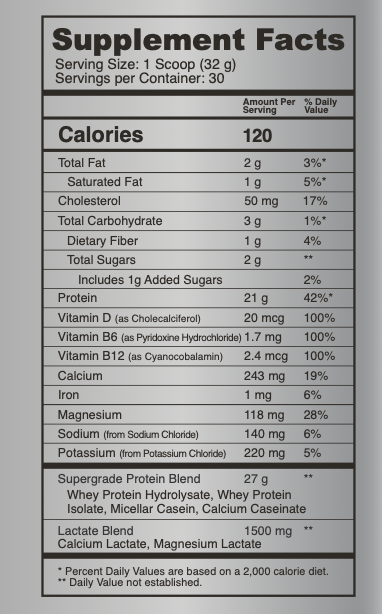Is the prospect of a nursing home appealing to anyone? Imagine a world where your biggest decisions revolve around bingo and choosing between applesauce or mashed potatoes. Doesn't that sound somewhat disheartening?
In recent years, the concept of “healthspan” has risen to prominence alongside “lifespan”. While lifespan measures the total years one lives, healthspan focuses on the period of life spent in good health, free from the chronic diseases and disabilities of aging. This distinction is crucial in our quest for not just a longer life, but a life marked by vitality and wellness. Read on to decipher the path you are on.
The Concept of Lifespan
Lifespan refers to the length of time an individual lives. Historically, the pursuit of a longer lifespan has been a primary goal of medicine and public health. Advances in medical technology, improved sanitation, and better nutrition have significantly increased average lifespans globally. However, an extended lifespan does not inherently imply a life lived in good health. Right now the data shows that the current life expectancy for the U.S. in 2023 is 79.11 years. There was a slight increase from 2022.
Understanding Healthspan
Healthspan, on the other hand, is a relatively new concept that emphasizes the quality of the years lived. It is defined as the period of one’s life that is free from debilitating chronic diseases and disabilities. The data on the average US citizen’s healthspan is in the high 60s. That is almost (minus) 20 years from the average lifespan.
Remember, healthspan focuses on enhancing the quality of life, not just prolonging it. This perspective encourages preventive health measures, lifestyle changes, and wellness-focused interventions.
The Gap Between Lifespan and Healthspan
Despite the increase in average lifespan, there remains a gap between lifespan and health span - and the data shows that this can be up to 20 years. Many individuals spend their later years battling chronic diseases, such as heart disease, diabetes, and arthritis. This gap highlights the need to not only focus on extending life but ensuring those additional years are healthy and fulfilling. So how do we increase healthspan?
7 Strategies to Improve Your Healthspan
Extending a healthy life, which focuses on both longevity and quality of life, can be achieved through various strategies. Here are seven effective strategies:
- Balanced and Nutritious Diet: Consuming a diet rich in fruits, vegetables, whole grains, lean proteins, and healthy fats can significantly improve health and reduce the risk of chronic diseases. Limiting processed foods, excessive sugar, and unhealthy fats is also crucial. The Mediterranean diet is often cited as an excellent example due to its association with longer, healthier lives.
- Regular Physical Activity: Engaging in regular exercise, including both aerobic and strength training, contributes to better physical and mental health. Exercise can help maintain a healthy weight, reduce the risk of chronic diseases, improve mood, and enhance cognitive function.
- Adequate Sleep: Quality sleep is essential for good health. It aids in the repair and rejuvenation of the body and mind. Adults should aim for 7-9 hours of sleep per night. Good sleep hygiene, including a consistent sleep schedule and a comfortable sleep environment, is important.
- Stress Management: Chronic stress can take a toll on health, leading to issues like heart disease, depression, and obesity. Techniques such as mindfulness, meditation, yoga, and even simple deep breathing exercises can be effective in managing stress.
- Regular Health Screenings and Preventive Care: Regular check-ups and screenings can detect health issues early when they are more manageable. Cancer screenings, and monitoring of blood pressure, cholesterol, and blood sugar levels are important preventive measures.
- Healthy Social Connections: Maintaining strong social ties and being part of a community can have significant health benefits. Social interactions can reduce stress, boost mental health, and even contribute to a longer life.
- Avoiding Harmful Habits: Avoiding smoking, limiting alcohol intake, and steering clear of other harmful substances are critical for a healthy life. These habits can lead to a range of health problems and significantly reduce both lifespan and healthspan.
Maybe you should write these seven strategies on your bathroom mirror. Incorporating these strategies into daily life can help not only extend lifespan but also ensure that those years are lived in better health. It's about creating a balanced lifestyle that supports both physical and mental well-being.

Do Your Genes Control Your Lifespan?
Genetics plays a significant role in determining an individual's lifespan, although they are not the sole factor. Studies suggest that about 20% to 30% of an individual's lifespan is influenced by genetics. The rest is determined by environmental factors and lifestyle choices. For instance, research in the field of gerontology has identified specific genes associated with longevity, such as the FOXO3 gene and the APOE gene, which have been linked to a reduced risk of chronic diseases and increased lifespan. Additionally, the study of twins, especially identical twins, provides compelling evidence of the genetic influence on lifespan. Identical twins, who share the same genes, often show more similarity in lifespan compared to fraternal twins, who share only about 50% of their genes. However, it's important to note that genetics is just one piece of the complex puzzle of longevity. Lifestyle factors like diet, exercise, stress management, and social connections play a critical and often more controllable role in determining lifespan.
Lifespan And Our Environment
Various studies have shown that factors such as air quality, water quality, exposure to pollutants, lifestyle habits, socioeconomic status, and access to healthcare significantly impact life expectancy. For instance, individuals living in areas with high pollution levels or limited access to clean water and nutritious food often have shorter lifespans compared to those in cleaner, more resource-rich environments. Additionally, the level of stress associated with one's living environment and the availability of social support systems also contribute to overall life expectancy.
While genetics play a part in determining lifespan, the environment interacts with these genetic factors in complex ways, ultimately influencing the length and quality of life. This interaction underscores the importance of creating and maintaining healthy environments to improve overall lifespan and well-being.
5 Ways Technology and Medicine Can Impact Our Living Longer and Healthier
The impact of technology and medicine on improving both lifespan and healthspan is profound, with numerous advances contributing to better health outcomes and longer lives. Here are five ways in which these fields are making a difference, along with relevant data:
- Personalized Medicine: Advances in genomics and biotechnology have led to personalized medicine, where treatments are tailored to individual genetic profiles. This approach has significantly improved the effectiveness of treatments for various diseases, including cancer. For instance, the use of targeted therapies in cancer treatment has led to a notable increase in survival rates. According to the American Cancer Society, the 5-year relative survival rate for all cancers diagnosed between 2010 and 2016 is 67%, up from 49% in the mid-1970s.
- Telemedicine and Digital Health: The rise of telemedicine and digital health tools has made healthcare more accessible, especially in remote areas. This has been crucial in managing chronic conditions and ensuring continuous care. A study published in the Journal of Medical Internet Research found that telehealth interventions could lead to improvements in chronic disease management, evidenced by reductions in hospital admissions and emergency room visits.
- Wearable Health Technology: Wearable devices that monitor vital signs and health metrics have empowered individuals to take charge of their health. These devices can detect early signs of health issues, leading to prompt interventions. Research from Stanford University showed that wearable technology could accurately detect common conditions such as atrial fibrillation, enabling early treatment.
- Advancements in Surgical Techniques: Minimally invasive and robotic-assisted surgeries have revolutionized medical procedures, reducing recovery times and complications. The Journal of the American Medical Association reported that patients undergoing minimally invasive surgery experienced fewer postoperative complications compared to those undergoing traditional open surgery.
- Regenerative Medicine and Stem Cell Research: Regenerative medicine, particularly stem cell therapy, holds great promise for repairing damaged tissues and organs, potentially reversing the effects of diseases and aging. Clinical trials are ongoing, but early results have shown promise in conditions like heart disease and Parkinson's disease. For instance, a study by the American Heart Association indicated that stem cell therapy could improve heart function in patients with heart failure.
These technological and medical advancements are not just extending the quantity of life but are also enhancing its quality, signifying a positive shift towards better healthspan alongside lifespan.
The distinction between lifespan and healthspan has profound societal implications. A population with a longer healthspan can remain active and productive for more years, reducing the burden on healthcare systems and contributing more significantly to society.
Quality vs Quantity
The trajectory of our lives mirrors that of a lightbulb. Some may dim slowly, their light wavering as they fight to keep shining, while others blaze intensely only to unexpectedly burst and extinguish.
The journey towards a longer healthspan is not just a personal quest; it involves societal commitment and a shift in healthcare focus. As we continue to make strides in medicine and technology, it's essential that we equally prioritize the quality of life as much as its quantity. The true measure of a society's progress should be not just in how long its members live, but in how well they live.









コメントを書く
このサイトはhCaptchaによって保護されており、hCaptchaプライバシーポリシーおよび利用規約が適用されます。